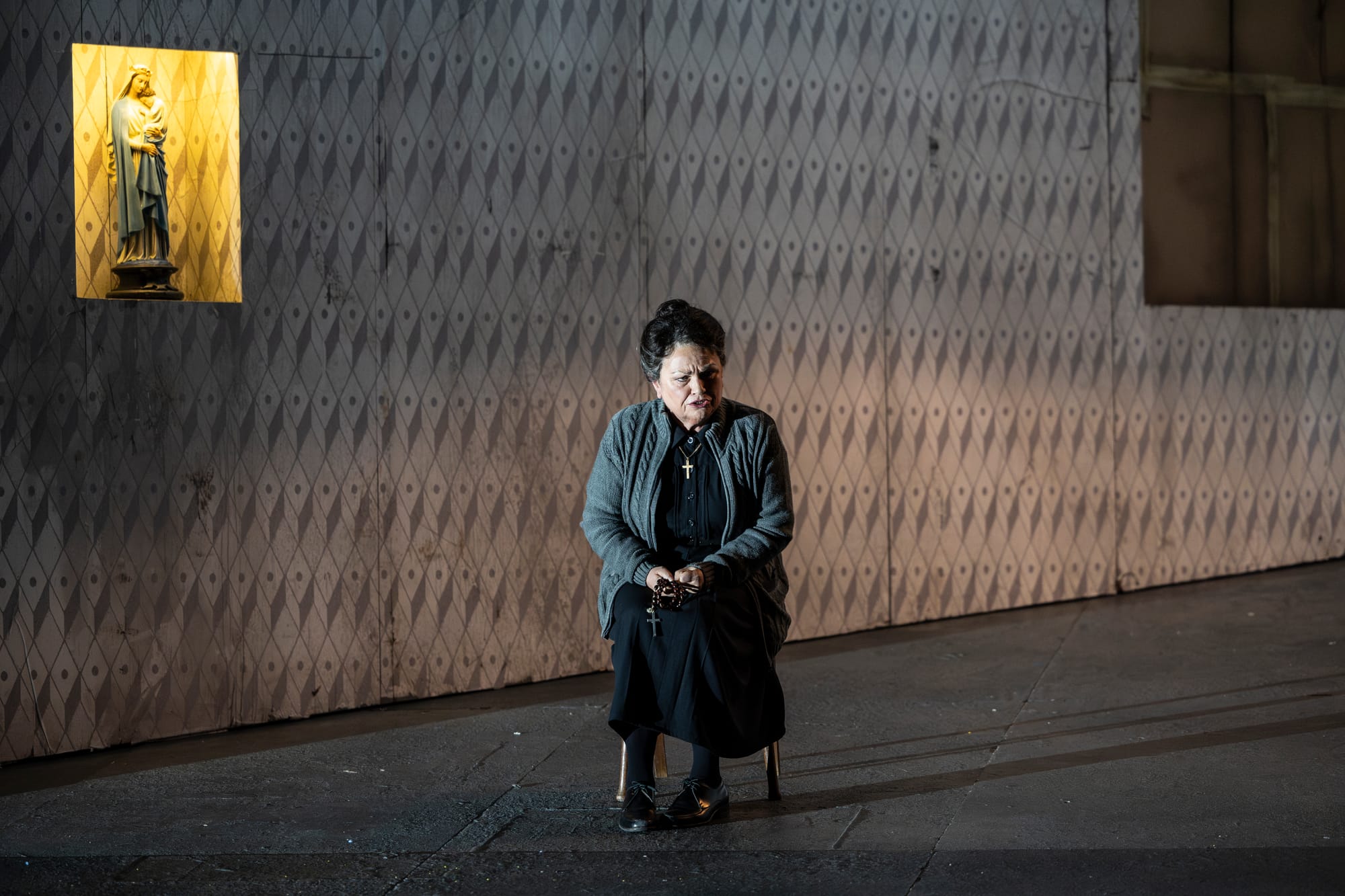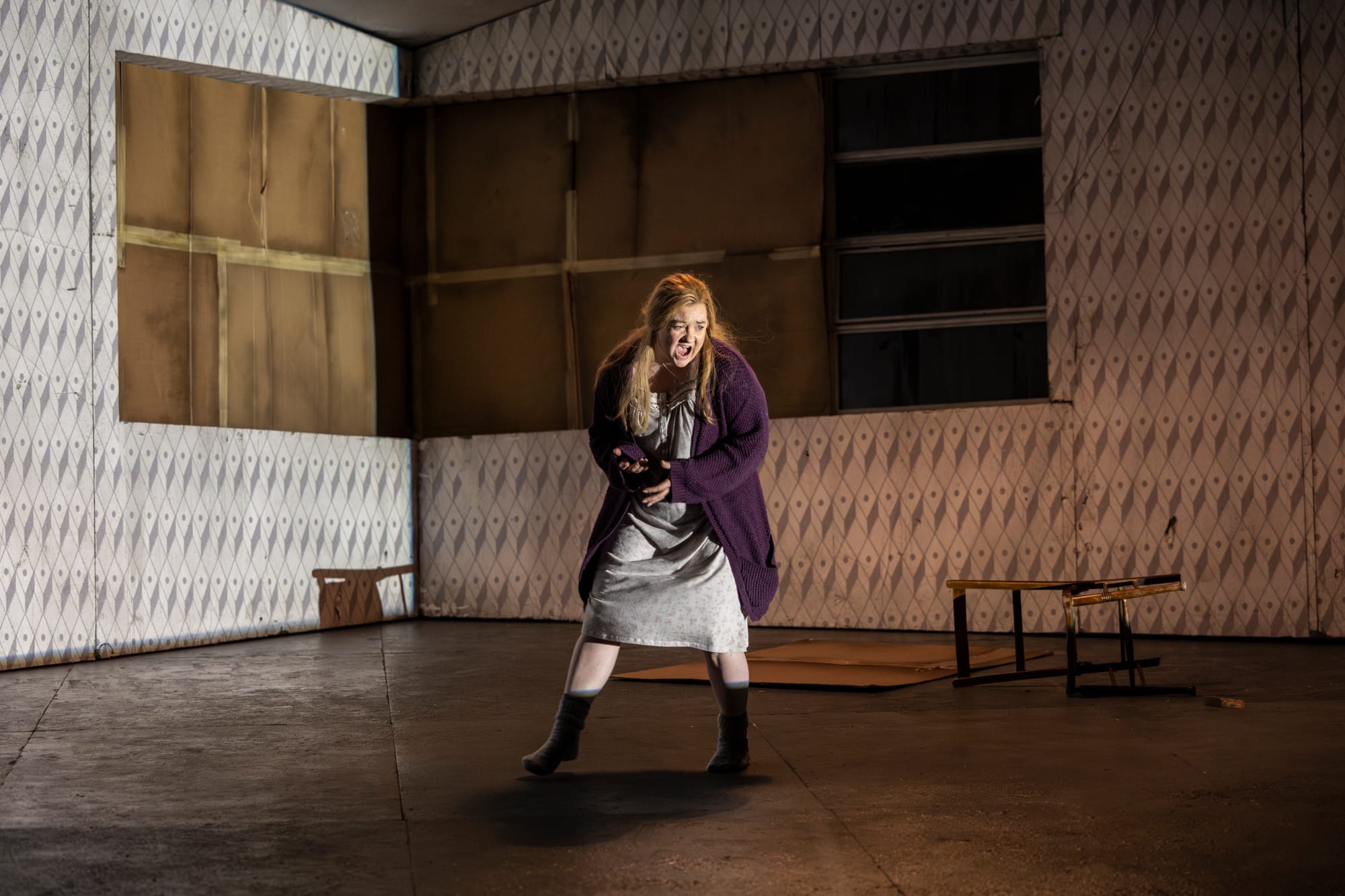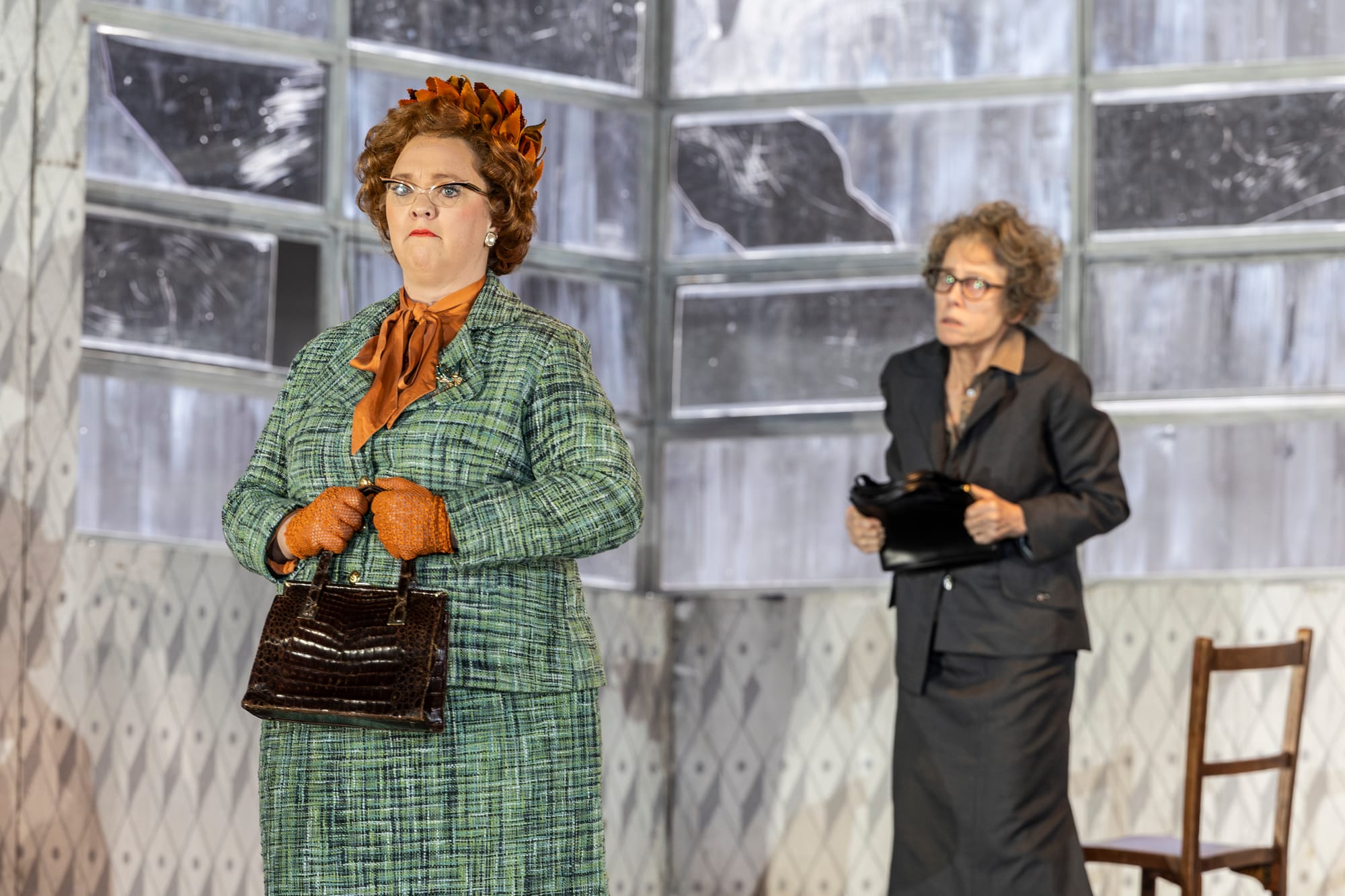Janáček's Jenůfa at ENO

Music by Leoš Janáček; Brno version ed. Sir Charles Mackerras and Dr John Tyrell; English translation Otakar Kraus and Sir Edward Downes.Libretto by Leoš Janáček, based on the play Její pastorkyña by Gabriel Preissová
Cast:
Jenůfa: Jennifer Davis; Števa Buryja: John Findon; Laca Klemeň: Richard Troy Smagur; Grandmother Buryja: Fiona Kimm; Kostelnička Buryja: Susan Bullock; Foreman: Darren Jeffrey; Jana: Julieth Lazana Rolong; Barena: Isabelle Peters; Mayor: Freddie Tong; Mayeor’s Wie: Madeleinne Shaw; Karolka: Segomotso Shupinyaneng; Neighbour: Morag Boyle; Villager: Joanna Appleby (replacing Claire Pendleton)
Director: David Alden; Set desginer: Charles Edwards; Costume designer: Jon Morrrell; Lighting desigenr: Adam Silverman; Revival lighting director: Ian Jackon-French; Movement director: Maxine Braham; Conductor: Keri-Lynn Wilson
Coliseum, London, Saturday 16th March, 2024
One of Janáček's most famous operas, Jenůfa is a clear masterpiece. Janáček, in his remarkable adaptation of Gabriela Preissová's play Její pastorkyña (Her Stepdaughter), offers a searing tale of infanticide and of the power of toxic dynamics within closed groups (a village) all held within his own remarkable, individual musical language. The score does include many references to Czech folk music, too – most sadly somewhat underplayed and therefore under-acknowldeged in Keri-Lynn Wilson’s account.
The opera needs someone who can sustain the tension throughout – Wilson achieved this in the second and third acts, but succeeded far less in the first act. Allowing the music to meander is not part of the deal. Still, the power of the music later as it hurtled towards its tragic conclusion of murder and subsequent ostracisation was undeniable; throughout, the ENO Orchestra played remarkably. Ceding only occasionally to the orchestra in what is to my knowledge the most recent performances in the capital, the London Symphony Orchestra (under Rattle at the Barbican, with Agneta Eichenholz in the title role), and playing with all the verve of their Covent Garden colleagues in Claus Guth’s production (last seen and heard by myself with Asmik Grigorian as Jenůfa in 2019), the ENO orchestra shone.
While the basic sound of the text changes hugely in translation, there is a strong argument for hearing this in English. Czech speakers in the UK are surely fewer than French or German, and non-native singers who can tackle some of the Czech language’s sounds (the rolled háček on 'r,' most famously) certainly exist, but not in great numbers. The singers have to make it convincing of course, and this was certainly a cast of notable strength. There was one substitution – the small role of ’Villager,’ Joanna Appleby replacing Claire Pendelton, announced from the curtain at the outset.
Director David Alden sets the opera not in a small Moravian village, but in an industrial estate in the Eastern Bloc. Grandmother Buryja (brilliantly, characterfully delivered by Fiona Kimm) has a hut from which she observes her surroundings. The staging works superlatively, not least through Adam Silverman’s often piercing, analytical lighting (seen via revival lighting director Ian Jackson-French). A Madonna set in the wall is isolated in an alcove, a reflection perhaps of Jenůfa’s aloneness. When the chorus crowds the stage in anger at the opera’s close, the effect is overwhelming. Against that are a myriad subtleties. The balancing act of creating the closed intensity and yet leaving space for the drama to unfold is masterly controlled by set designer Charles Edwards.
It was Jennifer Davis who owned the stage in the title role. Her voice is as powerful as her stage presence (her last operatic role was Elsa Lohengrin at Deutsche Oper at the end of last year – her Elsa at Covent Garden in April 2022, there another David Alden production, was certainly memorable). Davis’ responses to Kostelnička Buuryja, were frequently heart-melting, as was her prayer to the Virgin Mary. The two love interests in her life, Števa and Laca, were both taken from strength. John Findon was a strong Števa, meaning scenes with Jenůfa offered two singers of real vocal equivalence; Findon’s lower register is notably robust. Števa's capacity for manipulation was never once in doubt. American tenor Richard Trey Smagur as Laca, making his ENO debut but a regular a the Met, was in many ways Števa's opposite, overall-clad and earthy (not to mention huge of physical stature) against Števa's rampant, bad-boy hedonism.

It is always wonderful to encounter Susan Bullock. I last encountered her as Judit Duke Bluebeard’s Castle on tour at the Comedy Theatre in Beijing (Graeme Danby as Bluebeard) in October last year. To say she was spellbinding on that occasion is an understatement; her account of the Kostelnička was searing, a fearsome woman of fixed ideas who ends up committing one of the vilest of crimes. She was focused, never hysterical, but always wanting to be in control and yet, in the second act, reminding us in her scene with Števa that there is a more human side to her, too.
Of the smaller roles, Darren Jeffrey, a familiar name to ENO audiences, was a superb Mill Foreman, brilliantly focused of voice. Baritone Freddie Tong and former ENO Harewood Artist mezzo Madeleine Shaw both embraced the roles of Mayor and Mayoress, both vocally firm, with the Mayoress' costume perhaps suggesting a link to Mrs Merton ...

Segomotso Masego Shupinyaneng and Julieth Lozano Rolong made for a fine Karolka and Jana respectively; Isabelle Petes as Barena, too, offered a fine contribution. For all the stars out on this particular night, the performance still exuded the air of a company effort in which the combined forces were greater than any single contribution; in keeping, the ENO Chorus, as the village collective, was a major force in the evening and impeccable in all they did. All of this is, after all, what ENO has always been about.
I do hope the recent press kerfuffle about an ill-worded release was not the reason for the empty seats on Saturday evening. Jenůfa encapsulates all that is great and good about the operatic experience: gritty drama and red-raw emotions.
